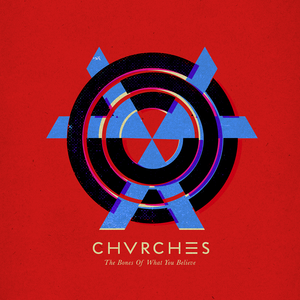Meta: Through irresistible, DIY pop-music and homespun, lo-fi throwback videos, Magdalena Bay vibes relatability and looks to break big in 2020.
Magdalena Bay is probably most known as a geographical destination for California grey whales that migrate to Mexico during the winter to mate. Magdalena Bay, the Los-Angeles-based Miami-reared electro-pop duo with a 20th century vibe and a DIY bedroom indie appeal, might surpass the whale destination as the go-to Magdalena Bay of 2020.
Mica Tenenbaum (songwriting and vocals) and Matthew Lewin (songwriting, vocals and production) have been crafting music together since their high school days. They debuted their new project, a shimmery pop music about-face under the moniker Magdalena Bay (aka Mag Bae) in 2016. This past year represented the first full year during which the duo lived and worked together in the same city since their high school graduations.
Originally a prog-rock band, Mica and Matthew forged a niche outside the mainstream Miami music scene. After their sojourn west and a seismic sonic shift into electronic-based pop music, they’ve moved toward the middle but still find themselves guided by that left-of-center mentality.
Mag Bae appeared on indie radars after going viral with a series of lo-fi mini-music videos featuring a striking “early 90’s late-night public access television” aesthetic. Many of these bite-sized retro-futuristic songs appeared on their mini mix vol. 1 compilation, released in mid-July. The exercise began as a way to purge bits of unfinished songs and focus on the journey to completion rather than fussing over the deluge of production minutiae.
Less an album than a pastiche of scraps, the mix’s standout track, a confection called “Nothing Baby” features an irresistible beat and a wall-to-wall hook that channels Britney Spears and Gwen Stefani. Highlighting their DIY roots, the companion video for the two-minute banger features footage shot by Mica’s family while on vacation in Japan laced with static and pixelation brought to you by limited-bandwidth and buffering near you. Go ahead — play it as many times as you like, but you’ll never get enough.
If “Nothing Baby” looks back at pop divas of the 90’s, the final track on mini mix, vol. 1, “Mine,” does so while pointing to Magdalena Bay’s future. The band wields sincere reverence for pop artists of the past (even contemporary punchlines like the Spice Girls) like a machete, carving out a path to a new decade of grassroots dance music. Mag Bae’s desire to re-take pop in the name of independently minded do-it-yourself artists comes through Matthew’s glitches and simple electronic effects that gives Mica’s starpower extra wattage.
“One night is taking up my whole life lately / Oh, the words you spoke / I’m looking for some antidote / That’s right, found each other but the timing wasn’t right / So you said baby” Mica sings, showcasing the simple symbiosis of a voice serving the hook and the hook supporting the vocals.
In December, the band released their fourth EP of the year. Oh Hell builds on their mini mix viral momentum and the self-assurance of “Mine.” The title track oozes sleazy seduction; the lust rests in the details. Matt’s slinky, shimmery production carries on into “Killshot,” a lovelorn dance ballad with a disco fetish. Always on brand, Magdalena Bay released an ultra-erotic, ultra-creepy, ultra-homebrewed video that brings out the best elements of their songwriting and production.
It’s impossible to say whether the release of mini mix vol. 1 expedited the duo’s growth by exorcising the clutter, but the songs contained on Oh Hell display a confidence that might not have been present in their early 2019 releases such as the dual EPs night/pop and day/pop, which feel less uniquely Magdalena Bay and more like Chromatics and Cut Copy idol worship. Their singular spirit carries through each of these latter releases, but maturity has added substance rather than mute mini mix’s unique incandescence.
It’s often easy to pump the brakes on a band that hasn’t yet released a full-length record, but Mag Bae released 20 new tracks in 2019 without a single pinch. Any band would be tested to come up with a more appealing and focused brand straight out of the gate. Mica and Matthew made 2019 their sandbox, and fans are flocking to Magdalena Bay’s relatability and appealing vibes inspired by leg warmers, Kylie Minogue, and Casio CTK-30 keyboards.
When asked about the ideal project, they answered that they’d love to provide backing music in some kind of Nicolas Cage movie. That gives you a sense of their wavelength. If Matt and Mica properly and rightly assume the electro-pop throne, the future might feature Zubaz pants, Bill Clinton cameos on late-night television, and 64kbps dial-up modems, but it’ll be simply irresistible.


